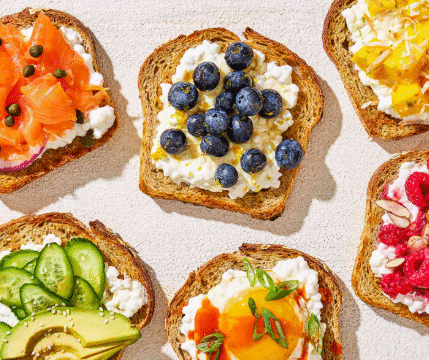Success in daily life often depends on more than determination or organization—it also relies on how well you nourish your body and mind. The meals you eat throughout the day provide the energy, focus, and stamina you need to stay motivated and perform your best. Eating with intention can transform ordinary routines into productive, balanced experiences that carry you from morning to night. The best energizing meals are not just about calories; they are about giving your body the right blend of nutrients that fuel both brainpower and vitality.
Starting the day with the right breakfast sets the foundation for success. A morning meal that combines protein, fiber, and healthy fats helps sustain energy long after you finish eating. A bowl of oatmeal with nuts and fresh berries, for instance, delivers steady fuel without causing an energy crash. The oats release carbohydrates slowly, while the nuts provide good fats that stabilize hunger. Berries add natural sweetness and antioxidants that support brain function. Another excellent choice is scrambled eggs with spinach and whole-grain toast, a combination that balances protein and complex carbohydrates to maintain alertness during busy hours.
Midday meals play a powerful role in determining how the rest of your day unfolds. Lunch should refresh and refocus you, not leave you sluggish. A salad rich in colorful vegetables, topped with grilled chicken or chickpeas, offers a blend of vitamins, fiber, and lean protein that keeps your energy consistent. Adding quinoa or brown rice as a side introduces complex carbohydrates for endurance. For variety, a whole-grain wrap filled with hummus, roasted vegetables, and leafy greens provides flavor and nutrients in a satisfying format that travels easily for workdays.
Dinner often serves as a time to restore the body after hours of activity, but it can also contribute to the next day’s energy if designed wisely. Meals that combine lean proteins, whole grains, and plenty of vegetables help your body recover while preparing it for restful sleep. Grilled salmon with roasted sweet potatoes and steamed broccoli is a classic example of balance. The omega-3 fats from the salmon support brain health, the sweet potatoes offer slow-release carbohydrates, and the vegetables provide fiber and antioxidants. Light meals in the evening promote better digestion and higher energy the following morning.
Snacks, though small, can have a big impact on how well you sustain productivity. Choosing options that blend protein and fiber keeps your metabolism steady. A handful of almonds with an apple, Greek yogurt with honey, or carrot sticks with hummus are satisfying ways to refuel between meals. These snacks prevent hunger dips that can distract you and help maintain concentration throughout demanding tasks. They also reduce the temptation to reach for processed foods high in sugar, which tend to cause quick energy spikes followed by fatigue.
Hydration deserves as much attention as food when it comes to maintaining energy for daily success. Dehydration can lead to tiredness and reduced focus even when meals are well-balanced. Drinking water consistently during the day supports digestion, circulation, and mental clarity. Herbal teas and infused water with fruit slices can make hydration more enjoyable without relying on sugary beverages. Moderate caffeine intake from coffee or tea can enhance alertness, but pairing it with water ensures you stay balanced and avoid energy crashes later in the day.
The quality of energy you experience is not only about what you eat but also when and how you eat. Consistent meal timing helps regulate metabolism and maintain steady energy. Skipping meals can cause blood sugar drops that lead to tiredness and irritability. Eating smaller, balanced portions throughout the day can prevent overloading your digestive system and promote better focus. Mindful eating—taking time to appreciate your food and eat slowly—also supports digestion and helps you recognize natural hunger cues.
Incorporating a variety of foods in your meals contributes to long-term energy and wellness. Different nutrients serve different roles in supporting your body. Whole grains like quinoa, brown rice, and oats offer lasting energy through complex carbohydrates. Fruits and vegetables provide vitamins and minerals that help convert food into usable energy. Lean proteins such as eggs, fish, beans, and chicken aid in muscle repair and focus. Healthy fats from avocados, nuts, and olive oil nourish the brain and keep you feeling satisfied. Together, these foods create meals that energize without overwhelming.
Some people find it helpful to plan meals ahead of time to avoid making rushed or less nutritious choices. Preparing ingredients on weekends or the night before can make weekday meals faster and more consistent. For example, you can cook a batch of quinoa or grilled chicken to use in different dishes throughout the week. Keeping fresh vegetables washed and ready makes it easy to build a quick salad or stir-fry. Planning in advance allows you to stay aligned with your goals and supports steady energy without relying on last-minute convenience foods.
Cultural food traditions also offer insight into energizing eating patterns. Many cuisines around the world naturally balance flavor and nutrition. Mediterranean-style meals, for instance, focus on vegetables, whole grains, olive oil, and fish, all of which promote lasting vitality. Asian-inspired dishes often combine rice, lean protein, and vegetables in ways that encourage harmony between energy and satisfaction. Exploring these styles of eating not only adds variety to your meals but also helps you find sustainable ways to stay nourished.
Maintaining energy through food is not only a physical process but also an emotional one. The meals that truly energize you tend to bring comfort and enjoyment alongside nutrition. Taking a few moments to sit down, breathe, and enjoy your food can reduce stress and enhance your sense of well-being. Feeling relaxed while eating supports better digestion, which in turn helps you absorb nutrients more effectively. When you associate mealtime with calmness and pleasure, you encourage a healthy relationship with food that supports both body and mind.
For those who lead particularly demanding days, small adjustments can make a noticeable difference. Adding an extra serving of vegetables to lunch, choosing whole-grain bread instead of refined options, or replacing a sugary drink with water might seem minor, but over time, these habits build consistent energy. Listening to your body’s needs—such as noticing when you feel hungry or when certain foods cause tiredness—helps guide better choices. Every meal becomes an opportunity to refuel intentionally and stay in balance.
Energizing meals are about more than short-term motivation; they are part of a lifestyle that nurtures resilience and success. When you eat thoughtfully, you equip yourself with the strength to think clearly, act decisively, and handle challenges gracefully. The food you choose shapes how you experience each moment of the day—from your first morning task to your final reflection at night.
Ultimately, the best energizing meals for daily success are those that blend nourishment, variety, and mindfulness. A breakfast that wakes up your senses, a lunch that sustains your focus, and a dinner that restores your energy all work together to create harmony within your routine. Each meal is a small yet powerful investment in your overall vitality. When you approach eating as a form of support rather than a mere necessity, you give yourself the steady energy and balanced mindset needed to succeed every single day.






